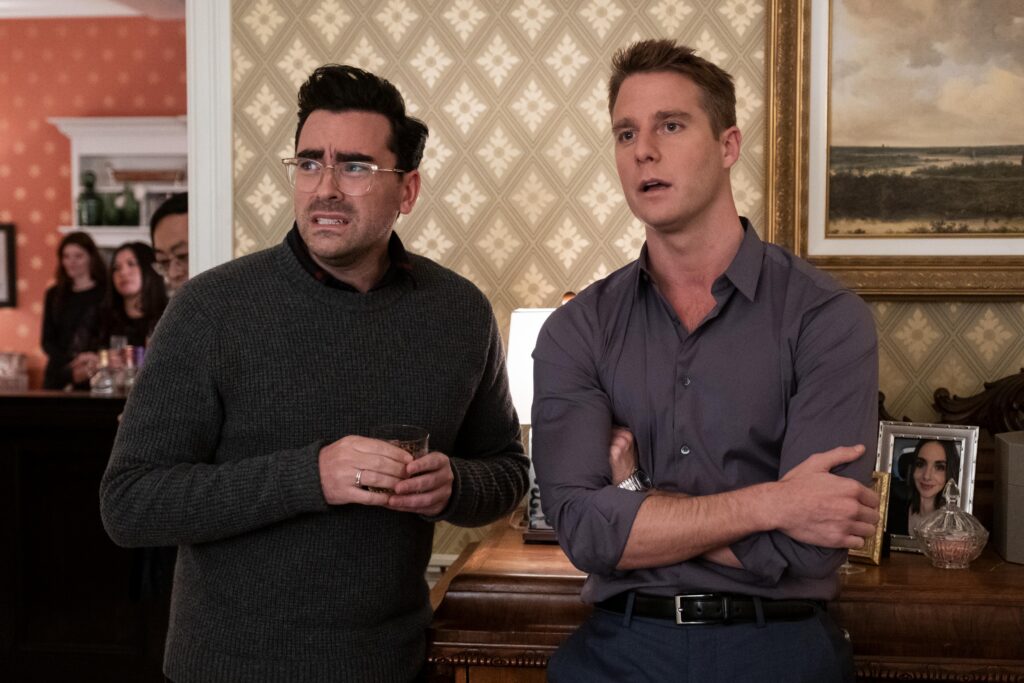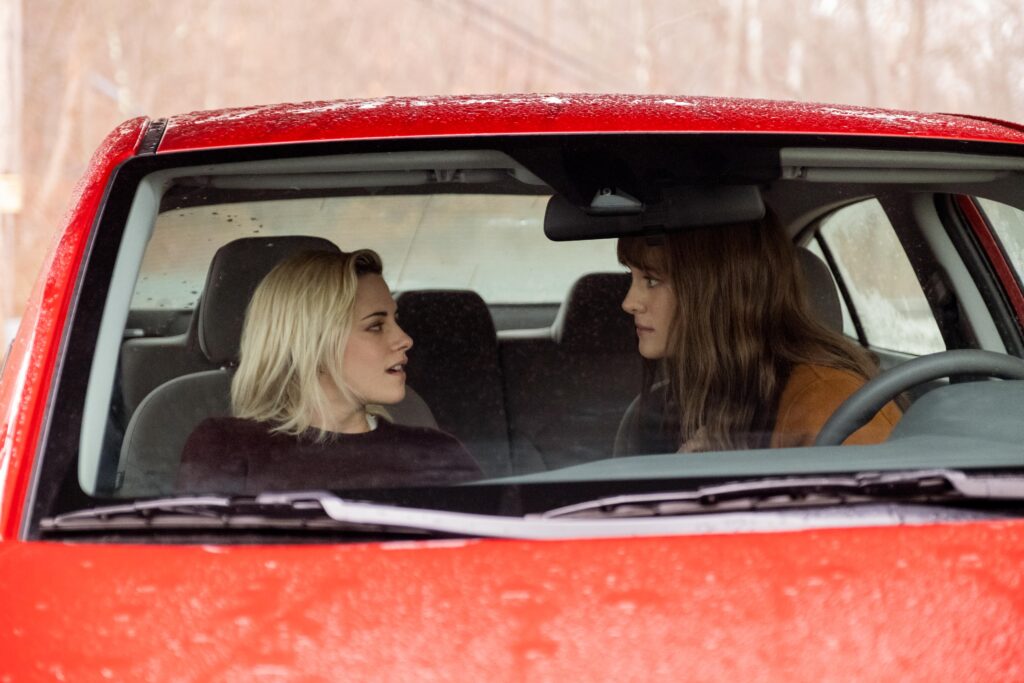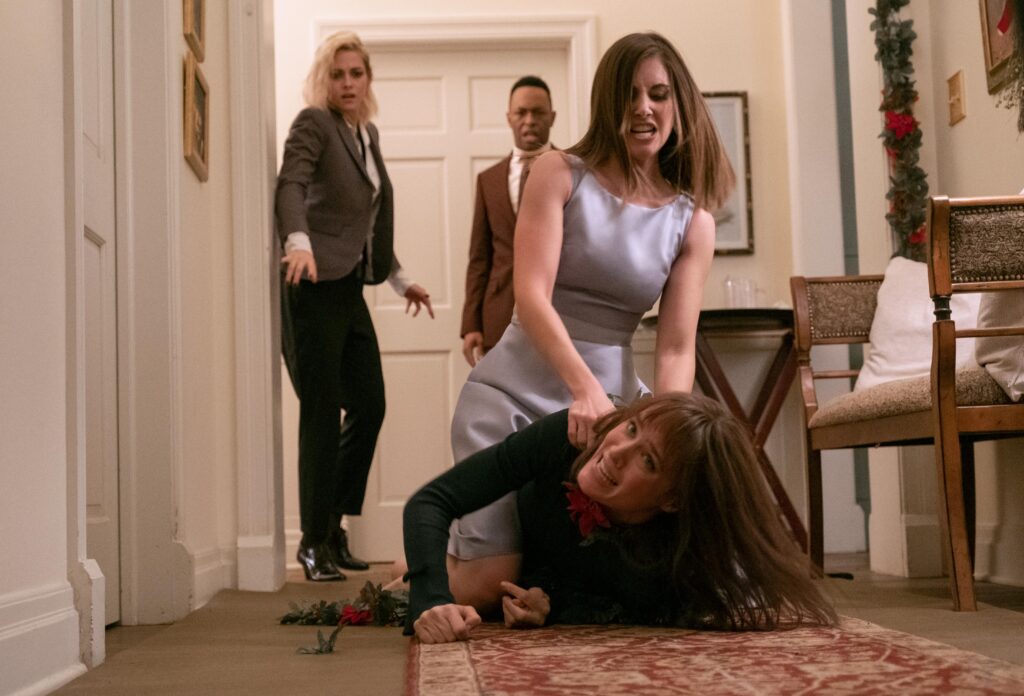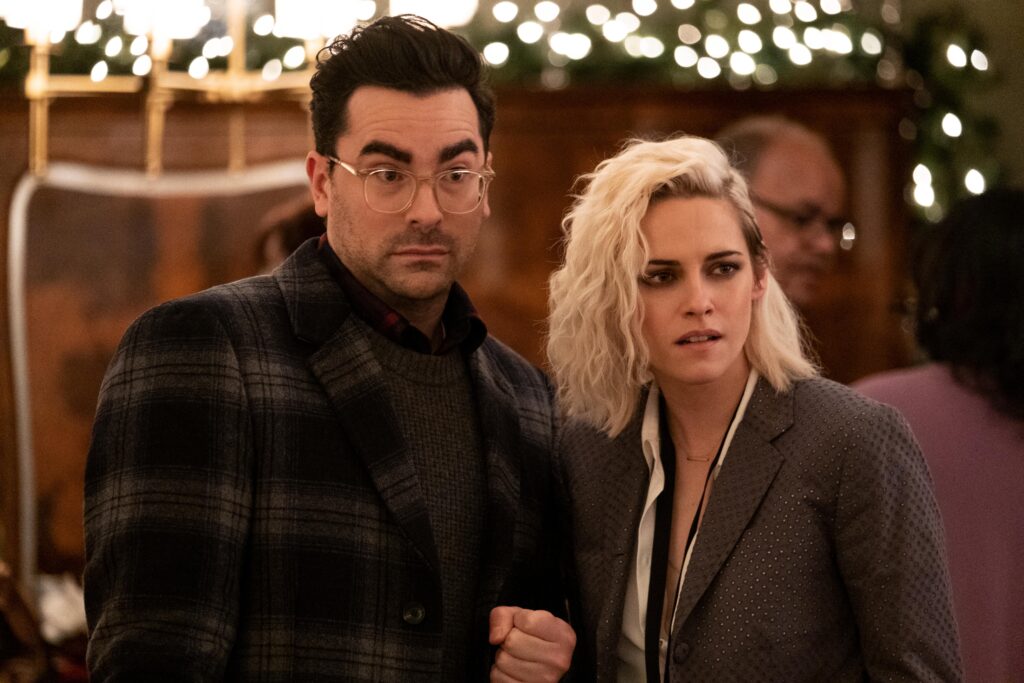Queer readings: The dark side of ‘Happiest Season’
It’s billed as the first queer Holiday rom-com but the Hulu movie has a subtext that is more about the closet than Christmas spirit.
Something is missing from the title of Happiest Season, the new Christmas film featuring Kristen Stewart (Abby) and Mackenzie Davis (Harper) as a lesbian couple; that “missing something” is a question mark: Happiest Season? Perhaps the answer is no.
Essentially a “get back in the closet” narrative, Happiest Season is a remix of The Birdcage (1996) where the point-of-view characters are lesbians age-swapped to children. Hints of Meet the Parents (2000) and the watered-down comedy remake of Guess Who’s Coming to Dinner (1967), Guess Who (2005), peek through when we see just how awful Harper’s family is. Self-centered, competitive, braggadocious, and blindly ambitious, the women in Harper’s family are not the kind of family anyone should want, and the father is little better as he leverages those women for his political gain. Can you say patriarchy?

And when confronted with the ugliness of patriarchy and heteronormativity, Abby literally ends up in the closet — with the Roomba bumping at her feet; then she ends up in the back of a department store interrogated by security guards after Harper’s sister’s devious young spawn plant merchandise on her; and then she ends up rejected again, and again, and again…until her evil sister outs Harper in a fight in front of the extended family and friends of her father’s political affiliates.
Here, John (Daniel Levy) swoops in like a fairy-gay-mother and sets into motion, by his presence alone, a tidy and trite ending full of love and acceptance: the father gives up his political aspirations, the evil sister becomes vulnerable, the demon children confess their sins, the oddball sister becomes popular, the lesbian daughter gets acceptance, and Abby gets a new family. All this in the last ten of 100 minutes.

Ending on a scroll through the no-longer-perfectly-curated Instagram feed of Harper and Abby at home for Christmas, a hopeful promise from early in the film fully dissolves. John, the gay best friend of Abby, advised her not to marry Abby, but also not to marry at all. His warning was against the patriarchal “ownership” that is associated with marriage. Later he appears and tells Abby after her final rejection, “Everybody’s story is different… once you say [you’re gay] you can’t unsay [it]… you can’t do it for anybody else… just because Harper isn’t ready now doesn’t mean she won’t ever be.” Not only is this a 180 for John, it actually encourages Abby to stay with Harper, which if this isn’t clear, is encouraging her to stay in an abusive relationship: going back in the closet for someone is abusive.

A fairly effective plea for pity from Harper marks her as wounded by abuse too. She says, “I’m not hiding you, I’m hiding me,” and “Love wasn’t something we got for free, it was something we competed for.” Her sisters later echo this point. On one hand this plea equates to “it’s not my fault, I was hurt” and renders Harper a powerless injured woman; on the other hand it suggests that most people who suffer abuse become abusers: neither option is good gay representation. Abby’s ultimate return to Harper suggests that all the trouble (read as abuse) was worth it.
At its worst, Happiest Season promotes the notion that wanting something bad enough will magically make it true: from perfect blind acceptance to long suffering want, from hoping she (or he) will change to believing over-investment in a new relationship isn’t codependent but healthy. And at its best, Happiest Season is the worst kind of wish fulfillment: selling queer people an image of themselves that isn’t looking forward but looking to conform.






